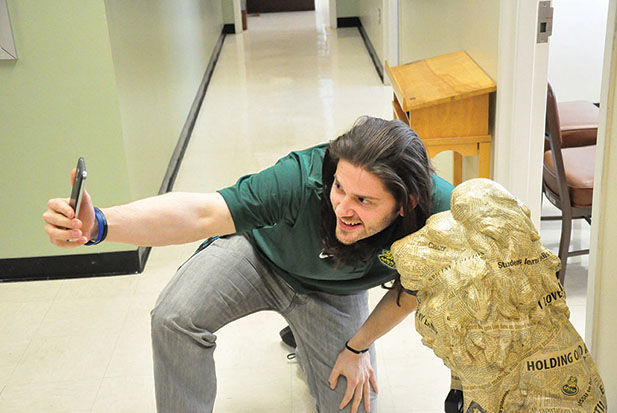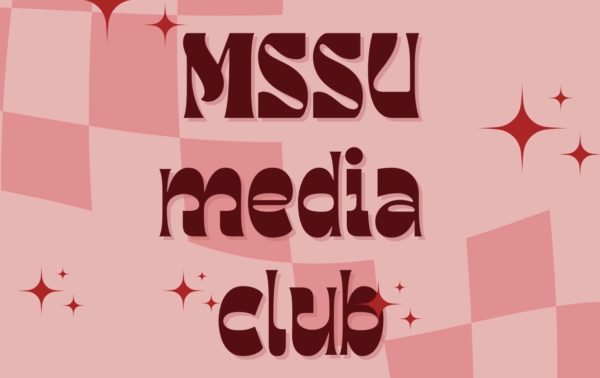Literally, it’s time to move on
Sports Editor Ian Taylor poses for a selfie with The Chart’s Lion sculpture in Webster Hall on Thursday, Jan. 23. Staff writer Matt Barney hopes the selfie is a fad that soon fades.
The year 2015 marks an important milestone for our culture. We now have an entire generation of adults who have grown up in the time of social media, and the Internet in general, ruling our daily existence. An unintended and disastrous consequence of this has been the rapid spread and transformation of the words we use and how we use them. As we reach the midpoint of the decade, it’s now time to press the reboot button on the English language and retire some of these worn-out words and clichéd phrases for good.
First up, the single word question mark combination that has become one of the most irritating and stale words of the past half-decade, “Really?” I’m not referring to “Really?” as an expression of curiosity. I’m talking about the trendy, more current use of it, conveyed with a high-pitched snarky contempt. You know the purpose. Say you’re sitting in class, and somebody asks a dumb question. The guy next to you leans over and says, in that sarcastic way he does, “Really?” It’s time to let this one die.
Next up we have the word “selfie.” When did any photograph containing you become a selfie? People don’t even use the term for photos you take of yourself anymore. I had somebody tell me to check out the selfie they took of their dog; that, sir, is not a damn selfie, it’s a picture of your ugly dog. Can we please let this word go?
And what about people who use the word “literally” when they mean it in the most figurative way possible. “I’m literally going crazy with all this homework.” You’re not currently residing in a room surrounded with white padding, are you? Or “I literally just sprinted to class.” No, you jogged 10 feet, then decided how cool it would be to update your 362 Facebook friends on how busy your life is that you had to sprint to class to make it on time.
Then there’s the formula of “How X was Y?” “How funny was that movie,” “how good was that pizza,” “how random was that.” If your wings were truly that great, a movie or event that justifiably funny or random, maybe you could apply an original adjective or thought to it.
These are just a few of the many examples out there. What are some of the things that irritate you? Send us your editorial, or post your favorites on our Facebook page, and let us know how you feel. The Chart is your paper too.
Your donation will support the student journalists of Missouri Southern State University. Your contribution will allow us to purchase equipment and cover our annual website hosting costs.






























